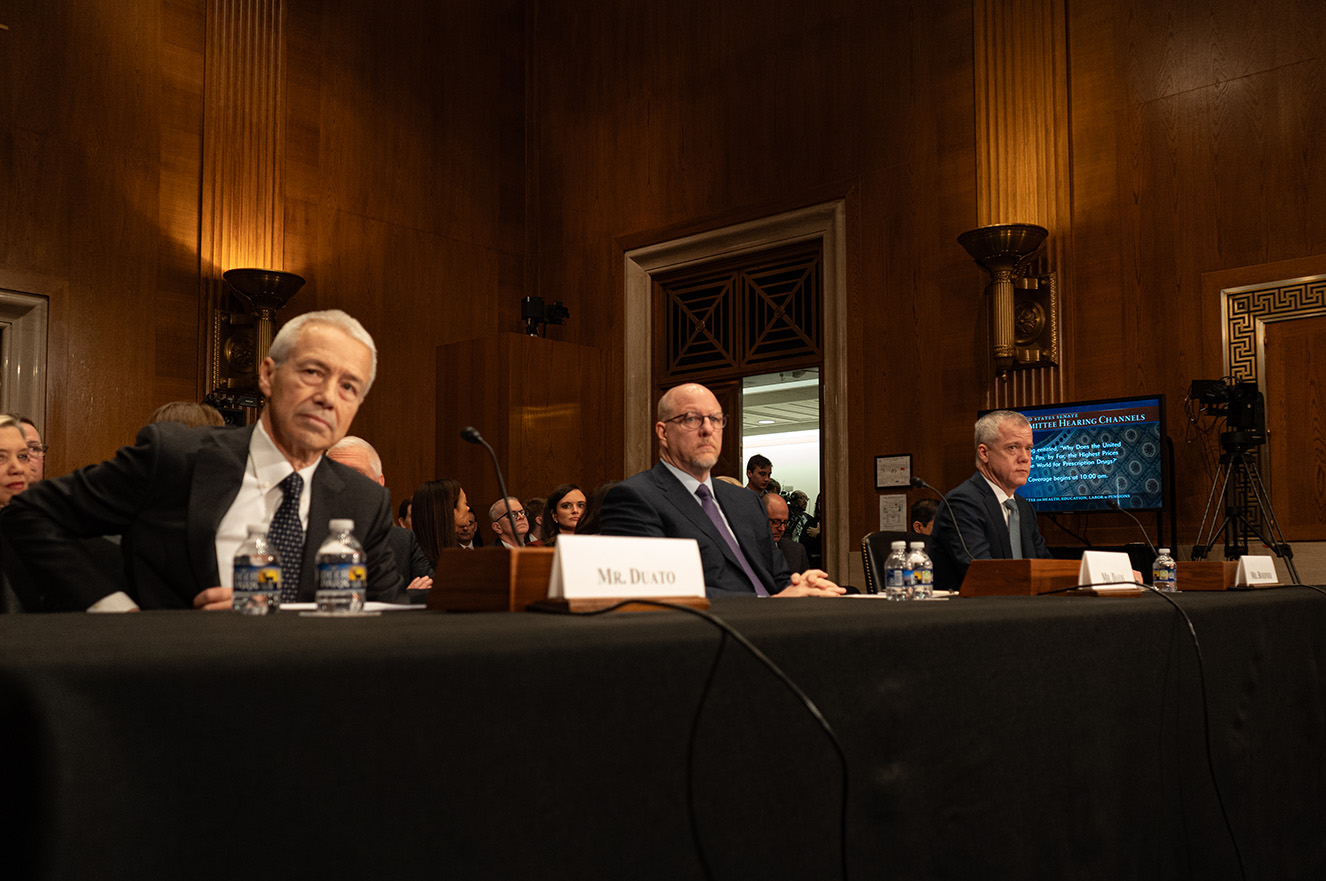WASHINGTON — Senators have rebuked CEOs of three major U.S.-based pharmaceutical companies for the high cost of prescription drugs in America.
“There is a lot of discussion in our nation about how divided our people are on many issues. That is absolutely true,” said the panel’s chairman, Sen. Bernie Sanders, I-Vermont, “but on one of the most important issues facing our country, the American people… could not be more united, and that is the need to substantially lower the outrageous price of prescription drugs in this country.”
Merck and Johnson & Johnson initially declined to testify at Thursday’s hearing of the Senate Health, Education, Labor and Pensions Committee, prompting Sanders to announce a committee vote to subpoena the companies’ CEOs. Both companies responded with letters accusing Sanders of targeting them for their lawsuits against the federal government over the price negotiation provisions in the Inflation Reduction Act.
Before the subpoena vote, the companies announced that they would agree to voluntarily testify. The witnesses included Joaquin Duato of Johnson & Johnson, Robert Davis of Merck, and Chris Boerner, of Bristol Myers Squibb (BMS).
In his introduction, Sanders cited a recent poll published by the Kaiser Family Foundation showing that 82 percent of American adults say the cost of prescription drugs is unreasonable, while 73 percent believe that there is not enough government regulation limiting that cost.
According to a report published by the committee’s majority staff before the hearing, several key treatments offered by Johnson & Johnson, Merck, and BMS require U.S. patients to pay much more for drugs on an annual basis than those in other countries pay for the same drugs.
“Are the prices that you receive from countries like Canada or France — which look to me to be about one quarter of the price you get from the United States — … covering your costs?” Sen. Chris Murphy, D-Connecticut, asked.
Duato said that Johnson & Johnson is making a profit on selling treatments in those countries, and that the real difference between U.S. patients and those in other countries is that American patients get access to pharmaceutical therapies years before international patients.
He added that price caps on drugs are “not the way innovation is going to be fostered,” echoing the stated reasoning in Janssen Pharmaceuticals’ lawsuit against the Department of Health and Human Services and Centers for Medicare & Medicaid Services.
The lawsuit filed by Janssen, a Johnson & Johnson company, argues that “the U.S. innovation ecosystem to which Janssen contributes has two vital components” that are threatened by the Inflation Reduction Act’s drug price negotiation program.
Janssen’s lawyers said these components are the agreement between the federal government and drugmakers when the FDA approves new treatments, and “the operation of free-market forces to establish prices for medicines during and after their patent terms.”
But senators questioned the companies’ commitment to innovation, citing the findings of a recent study revealing that manufacturers of drugs chosen for Medicare negotiation spent more overall on stock buybacks and dividends than on research and development in 2022.
Sens. Rand Paul, R-Kentucky, and Mitt Romney, R-Utah, reinforced the points made in the suit, suggesting that senators asking the CEOs what their companies are doing to lower the gap between costs and profits are out of step with the free-enterprise system.
“The last time I checked, when a buyer and seller negotiate for a price, that’s capitalism,” retorted Sen. Maggie Hassan, D-New Hampshire.

